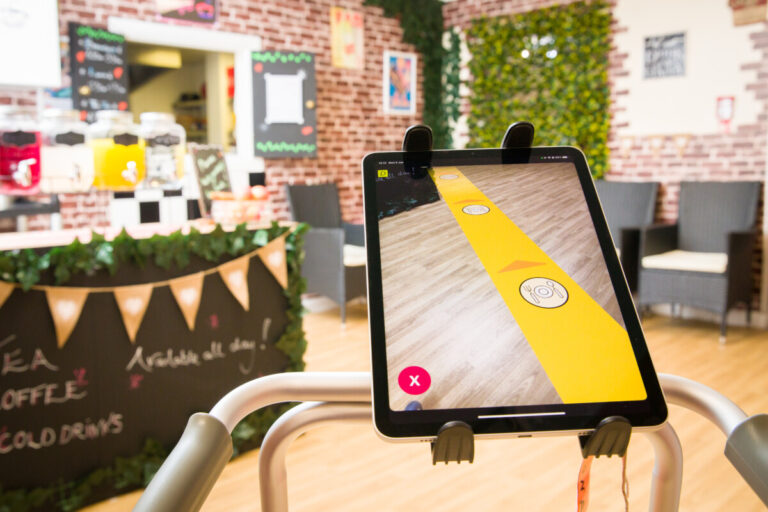Longitude Prize on Dementia announces semi-finalist grant recipients

Twenty four innovations to help people with dementia have each been awarded £80,000 grants as semi-finalists of the Longitude Prize on Dementia.
The Longitude Prize on Dementia is a £4mn international prize fund for new technologies to help people with early-stage dementia to live independent and fulfilled lives. It launched last September, and funded by Alzheimer’s Society and Innovate UK, and delivered by Challenge Works. The competition itself has also been co-designed with people living with dementia.
Today, 20 June, a total of £1.9mn has today been awarded to 24 teams of developers, researchers and innovators from across the globe as Discovery Awards of £80k to develop their technologies. The teams, from the UK, USA, Canada, Australia, UAE, Colombia, Portugal and the Isle of Man, will now work alongside people living with dementia and their carers to ensure technologies are intuitive, easy-to-use and able to adapt to their changing needs.
Advertisement
The innovations include:
- An augmented reality map to prevent people getting lost or confused – The Dorothy Community from Care City (UK) is a digital “Yellow Brick Road” map that uses augmented reality to provide virtual directions, visualised pathways and simple instructions for people living with dementia to independently navigate their local community.
- High-tech specs for facial recognition – iMAGIC smart glasses are being developed by Khalifa University (UAE) to help people recognise familiar faces, provide reminders and alerts, zoom in and out to facilitate navigation, make phone calls to loved ones and monitor vital signs. The glasses will also eventually be able to help identify objects that sport a QR code (a type of barcode that can be scanned and interpreted by computer software).
- A virtual speech assistant app to fill in missing words – the interactive AI software from Amicus Brain Innovations (USA) will use speech and language processing to listen to “broken speech” – a common challenge as dementia advances – and speak aloud the AI’s “repaired” rendition of what the user intended to say.
Kate Lee, CEO, Alzheimer’s Society, said:
“It’s vital people with dementia are able to live independently, doing things that bring them fulfilment, for as long as possible. And that’s exactly what tech innovation can provide.
“Today’s Discovery Award winners all have the capacity to develop cutting-edge tools that bring hope to the here and now, making a tangible difference to people’s lives.
“New drugs have been discovered which slow the progression of early Alzheimer’s disease, but there’s still more to do. Alzheimer’s Society remains committed to innovative projects like the Longitude Prize so that together we can improve the lives of people living with dementia and their families.”
In 2024, five finalists will be announced, who will receive an additional £1.5mn in funding to build real-world prototypes. In total, more than £3 million will be awarded in seed funding and development grants with a £1 million first prize to be awarded in 2026.
In addition, wider expert non-financial support has been funded to provide innovators with insight and expertise in the next three years, such as access to data, specialist facilities, collaborations with people living with dementia and expert advice on technical and business aspects of the innovation and to facilitate knowledge sharing between participants.
Indro Mukerjee, CEO, Innovate UK said:
“By addressing dementia the Longitude Prize tackles a global health crisis. Worldwide, around 50 million people have dementia and there are nearly 10 million new cases every year. Innovate UK is pleased to support this initiative along with the other vital work we are doing in this area. The UK is a global leader in innovation for healthy ageing and this prize will incentivise new technologies. This will help people with dementia, their families and their carers, to make living with the condition easier.”





